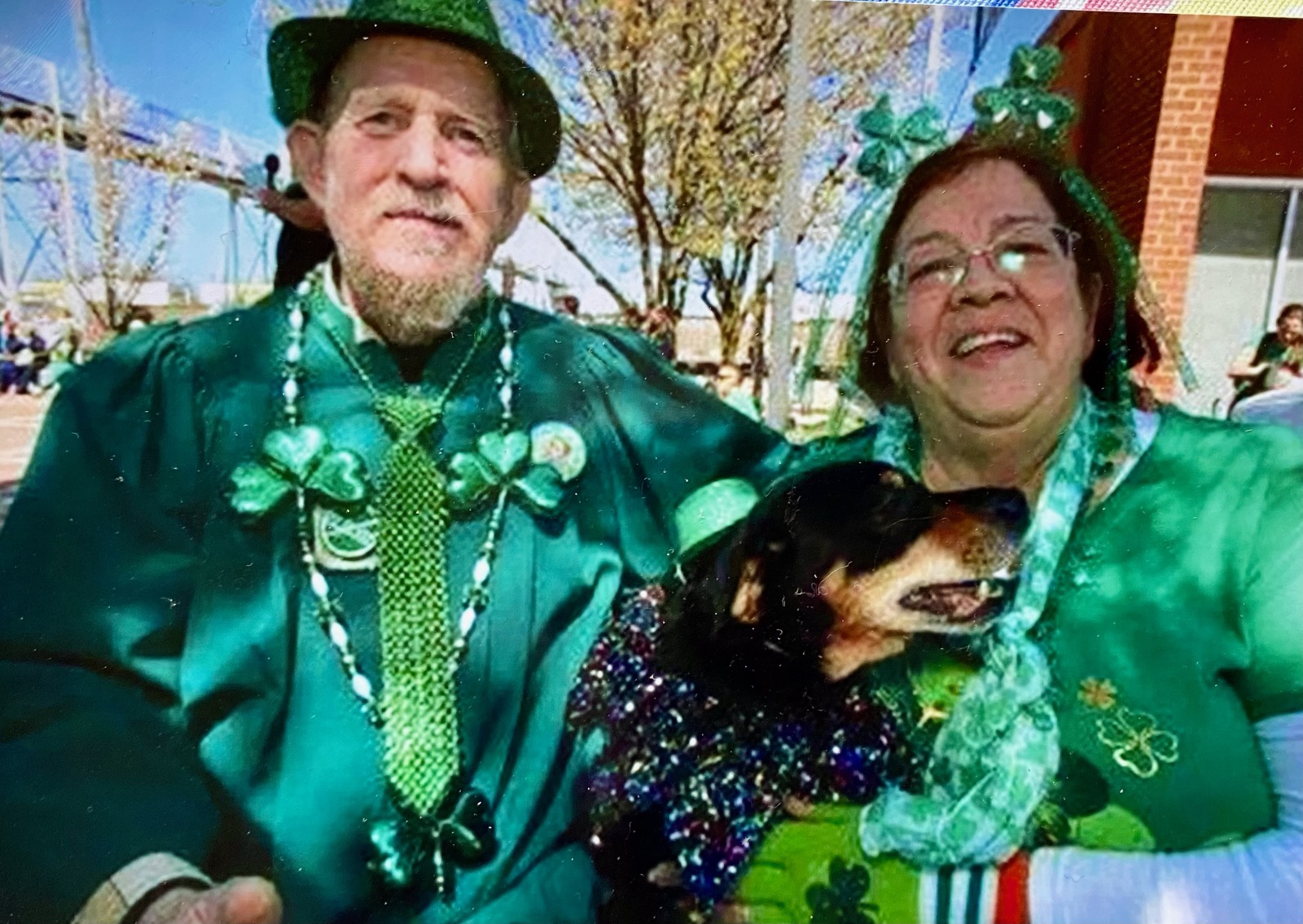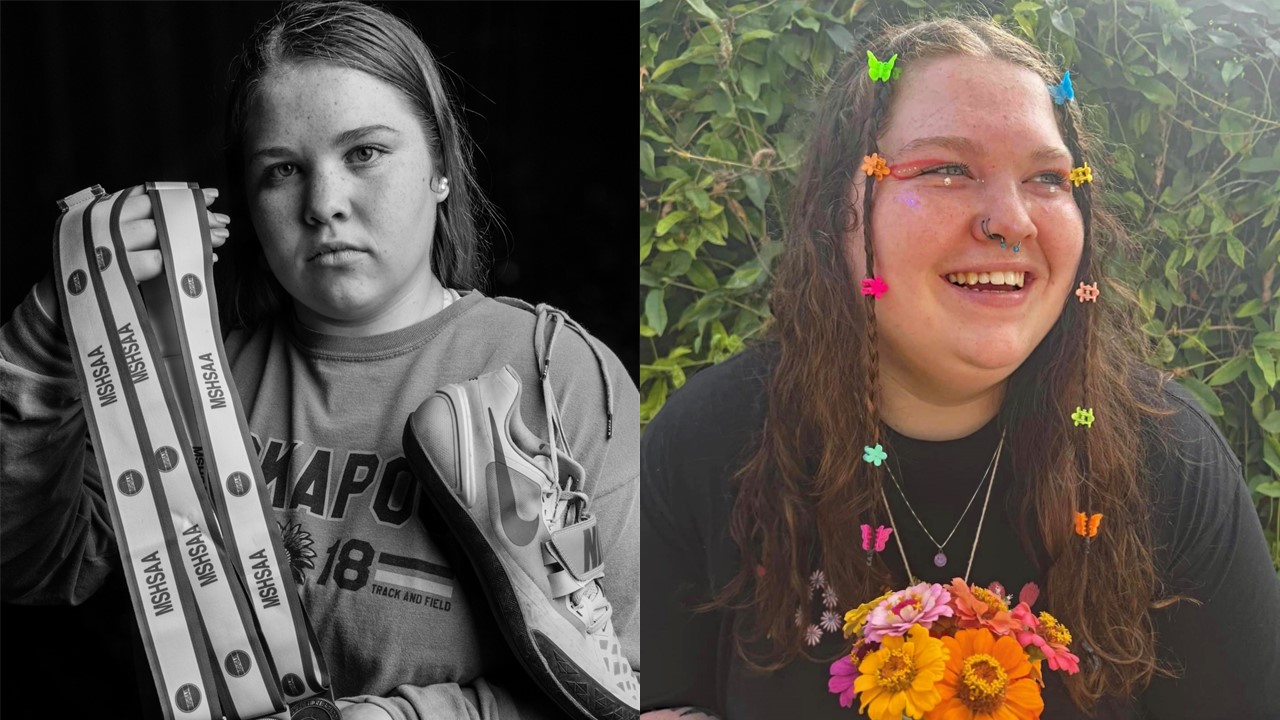Jean Marie Chappell led by example — and occasionally pushed with purpose — producing positive results that live on beyond her allotted 93 years.
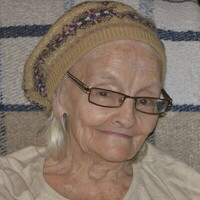
She set her two sons off on careers in music and business and charity work. She imbued her daughter and nieces with social graces and homemaking skills. She looked after other family members’ well-being, and extended a helping hand even to total strangers in need.
So since Jean died March 9 there have been fond memories shared among those who knew her best. Such as:
- She was the booking agent for Ruell and Alan’s first band, Stillwater Junction, drove them to gigs until they got old enough to get licensed, and she stood guard off-stage in case things got rowdy. She welcomed their friends to hang out in the basement as the band practiced.
- She opened her closet to daughter Melody, her young friends and cousins to play “dress up” with her clothes, shoes and accessories while teaching them how to cook and demonstrating how to act like a lady.
- She hosted dinners for family. She provided snacks and meals for her kids’ friends — even a place to sleep if things weren’t going well at home.
- And, coming from a family populated by generations of Frisco Railway employees, she was led to feed down-on-their-luck travelers who “rode the rails” and showed up at her doorstep after hearing that she was kind and generous.
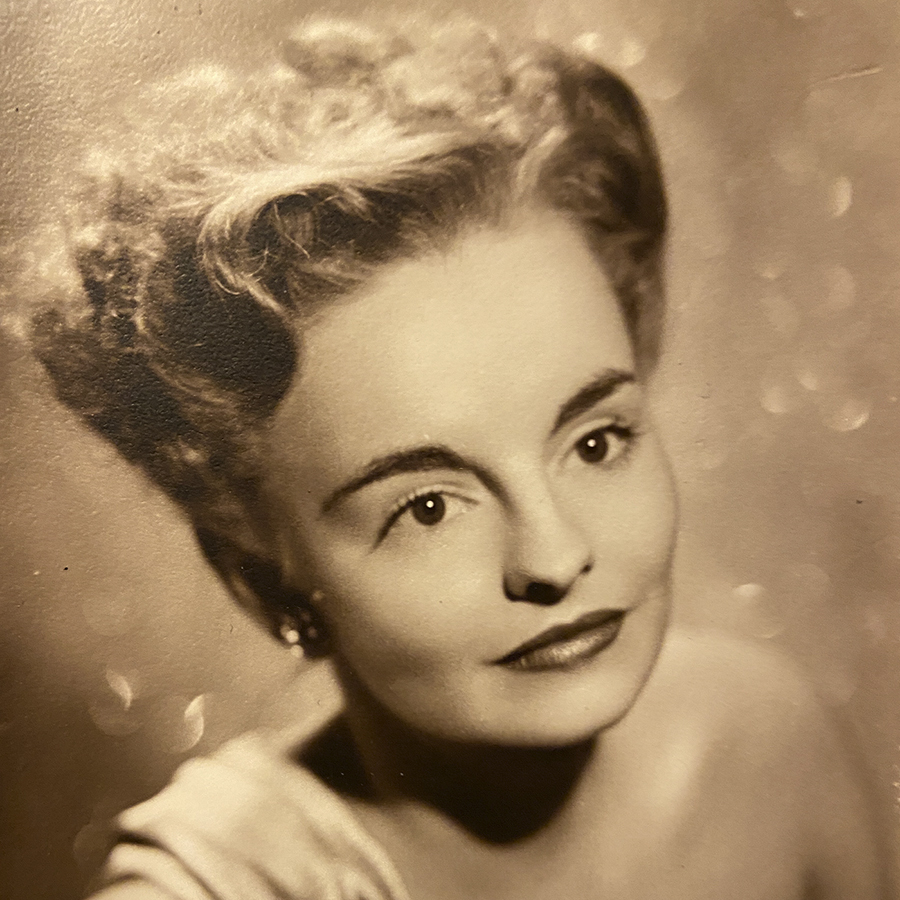
“We grew up at 1313 West Nichols, and there was an active rail spur at Fort and Nichols, so you’d see four or five trains go down there every day back then,” recalls Alan of his boyhood in the 1950s and ’60s. “There was a lot of hobo activity. Mom grew up in the Depression, and she just fed people if they were hungry.”
“Hobos would make marks,” says Ruell. “There was an arrow and some cryptic symbols on the concrete abutment that held the track above Nichols Street, so they knew right where to come — to our house.”
Eventually Jean’s example was followed by neighbors, notes Alan. “I remember when Mom wasn’t around, those guys would come walking down and the lady who lived across the alley would give them food.”
Jean’s husband, R.I. “Sonny” Chappell, was a Frisco man, having worked his way up from brakeman to conductor. “Whenever he got in from a railroad run, Mom would make Dad dinner,” says Alan. “I mean, it didn’t matter if it was 2 o’clock in the morning, she’d get up and make him a nice dinner.”
Her brother, Larry Buster, who also worked for the Frisco, testifies to Jean’s kitchen skills: “I cannot picture my sister without thinking of her cherry pie. Oh, she always baked the best cherry pies of any I’ve ever had anywhere! And when she’d have a bunch of us over for dinner, she was always up serving everyone, making sure their drink was full or coffee was hot. ‘Do you want some of this?’ and ‘Do you want more of that?’ You’d have to beg her to sit down and eat herself.”
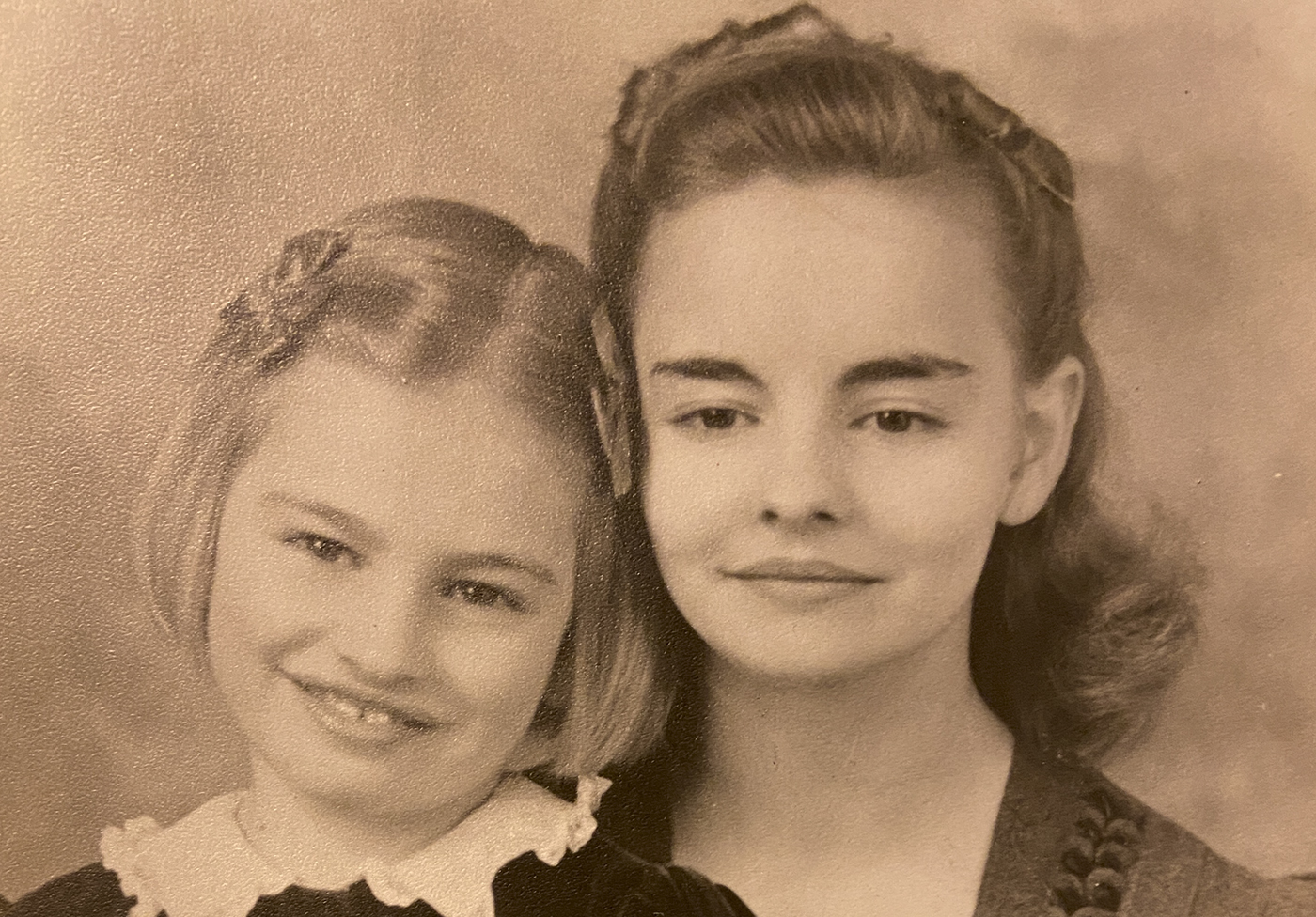
As a young woman, Jean also worked for the Frisco, as administrative assistant to the terminal superintendent, after her family moved up from Oklahoma to Springfield. Her dad, Elige Vandarial “E.V.” Buster, became a Frisco roadmaster — a job he got thanks in part to help from his daughter Jean.
“He was a gang foreman in Oklahoma,” says Larry. “My father never got schooling beyond a third-grade reader, and he was up for promotion for a job that today requires a college degree in engineering. Jean had graduated high school, and she taught him to do mathematics, which was the big thing he needed. He got a pretty good education from her (Jean) and our mom.”
That recollection prompts a hearty laugh from Larry, who was a latecomer to the family, arriving 17 years after Jean. “My sister never forgave me for ruining her high school graduation,” he says. The reason? “I was born. On her high school graduation day. And, boy, did it mess things up!”
Jean’s secretarial skills, honed while she worked in the Frisco executive offices, continued to serve her well after she refocused on her roles at home. “She was the typist for the entire community,” says Ruell. “She typed every college paper I ever turned in. She did the same thing for Alan, and I know she did for Larry, too. If anything had to be typed, to be presented in a business-like manner, she did it because she knew how.”
Jean’s willingness to help extended throughout the family and beyond. Alan recounts how she once provided a set of sturdy steel-toed work boots for a relative so that he could start a new job (with the railroad, of course). Ruell says his mom “was frugal, but somehow she always had money — and help and time — for anybody who needed it.” She also served as PTA president and volunteer worker when the kids attended Fairbanks Elementary School.
Ruell and Alan were influenced early on by Jean’s enthusiasm for music and her encouragement to them to pursue it.
“Our parents were big into ballroom dancing — the Flamingo Club, the Grove,” explains Ruell, “Dad played the guitar some, and Mom was a really good piano player. But when the Lowry organs came out, she wanted to learn to play the organ. So Dad got her a Lowry through Hoover Music here. They had a group that met once a week or so, and they’d play for each other. That’s how I learned to play the keyboard. And it was decided that Alan would play the drums. (“I lost the coin-toss,” is Alan’s version.)
When they were 13 and 14 years old, the boys enlisted a bass player, Danny Wills, and Stillwater Junction was born. They began playing local dances and high school proms, and eventually at school functions as far away as West Plains and Willow Springs. Jean was their driver as well as their agent and business manager, even designing an impressive contract form.
Like a scene out of ‘Blues Brothers'
Then the band began getting bookings in grown-up clubs around the area, including one in Aurora and some in Joplin that Alan recalls could be “rough as a cob.” Jean would drive the boys to the job but didn’t wait outside until after the show. “She wouldn’t leave us in the club by ourselves,” he says. “She stayed inside, usually just out of sight, and kept an eye on things.”
One of their earliest club gigs was in a converted poultry house outside Galena, Kansas, that Ruell likens to a movie scene: “You remember the place in the ‘Blues Brothers’ that had a chicken-wire screen in front of the stage to protect the band? Well, this place had chicken-wire…”
“And the manager looked like the guy in the movie — wore a cowboy hat,” notes Alan. “He told us, ‘Now, when they start fighting — he didn’t say ‘if,’ he said ‘when’ — you boys play faster and louder.”
Ruell picks up the story: “We weren’t 15 minutes into our first set when there was a huge brawl, with beer bottles flying up toward the stage and into that screen. And Mom was sitting beside the stage, making a sign (Ruell makes a circular motion with his finger) telling us to keep playing, keep playing.
“Mom was a little person — she was 4-foot-11 at her tallest — but she didn’t ever appear to be afraid of anything!”
Yet Jean was gentle and refined in other settings, assures a great-niece, Teresa Lynn Swearngin, who fondly remembers riding the Greyhound bus from her Kansas City home to Springfield alone as young as age 5, to spend a week or two with cousin Melody and other young relatives under the watchful eye of “Aunt Jean.”
“They had a ball diamond and an apple tree in the backyard, and we’d run around like crazy out there,” Teresa says. “But the thing I remember most about Aunt Jean was her letting us girls dress up in her clothes and her jewelry and her shoes. She was a classy lady; she dressed pretty.
“Her feet were so tiny — she wore a size three-and-half shoe, but oftentimes she couldn’t find them that small and would have to buy a size four. We were little, so even those were big on us kids. I can still remember the ‘clonk, clonk, clonk’ sound as the heels would slip off our feet and hit the wood floor when we walked from her closet to the kitchen.
“We’d follow her around the kitchen, and she would show us how to cook. Everybody still tries to make scrambled eggs and cheese as good as Aunt Jean made them. And she always had dessert on the table — whatever Uncle Sonny liked. Maybe an upside-down cake with pineapple and cherries on top. Or a chocolate Jello pudding with a graham cracker crust and whipped cream.
“She and my grandmother put together a family reunion cookbook for everyone, with some of their own favorite recipes and some they learned from their mothers and grandmothers. We still use it, and so do our kids — her great-great-nieces and nephews are still cooking her recipes.
‘A bright star, a beautiful spirit'
“Aunt Jean taught us how to be ladies,” sums Teresa. “She taught us how to walk in heels, how to get dinner ready, how to manage kids. Those little tiny shoes of hers, they were small — but they also are big shoes to fill.”
Jean’s brother Larry puts it this way: “She was a bright star, a beautiful spirit.”
Her sons express similar sentiments and gratitude. Ruell installed his parents in a house across the street from his in southeast Springfield for several years, until Sonny died in 1996 at age 79, just a few days shy of his and Jean’s 50th wedding anniversary. Alan then moved Jean in with some of his family in Brookline.
After she suffered strokes, doctors predicted only two or three more years of life. “But Mom lived another eight years,” says Ruell, “and I know, as well as anything, that a big part of that was because family was always around. She got to see her grandkids, her great-grandkids, she watched movies with them and was always involved. She was sharp as a tack until almost the very end.”
Ruell credits Jean for his lifelong career as a musician — he’s played with numerous groups locally and presently is a member of the far-ranging Ozark Mountain Daredevils — and as an advertising jingle composer, as well as his more recent endeavors with Play It Forward, a charitable organization that provides musical instruments to children who cannot afford to buy their own.
Alan has continued to play drums but his main profession before retiring and returning to Springfield was as an environmental consultant, helping design and build large composting facilities to recycle food waste in 11 states from California to New York.
“As I was traveling around, every so often I’d run into one of my friends from high school that I hadn’t seen in 20 years,” he says with a chuckle. “And they’d say, ‘Hey, how have you been?’ But then right away they’d say, ‘How’s your mom?’ They didn’t want to talk about Al — they wanted to know how Jean was doing. She’d fed them all.
“If Dad had had his way, we would’ve been railroad guys. Mom was the one who kept pushing music. And it’s turned out well for us. She wasn’t a limelight person; she was more a behind-the-scenes type. But she was all about action; she got it done. I’ve always said that I didn’t go to school to learn how to have a business. No, my mom taught me, booking us band dates when we were kids, driving us around, making it into a business.”
According to Ruell, “Everything that Alan and I have done has ‘Jean Chappell’ written all over it. You treat people right, you do the right thing — and you realize how lucky you’ve been in your life. Mom always did that; she never griped about anything. If things didn’t look good, she got out and did something good to offset it.”
Jean’s memorial service was modest, in keeping with her wishes. Not long before she died, she instructed: “You know, I’ve had enough flowers in my life. So when this deal happens, let’s do donations to Play It Forward.”
“She didn’t need a big sendoff,” says Ruell. “She’d done her work right here in her life.”


